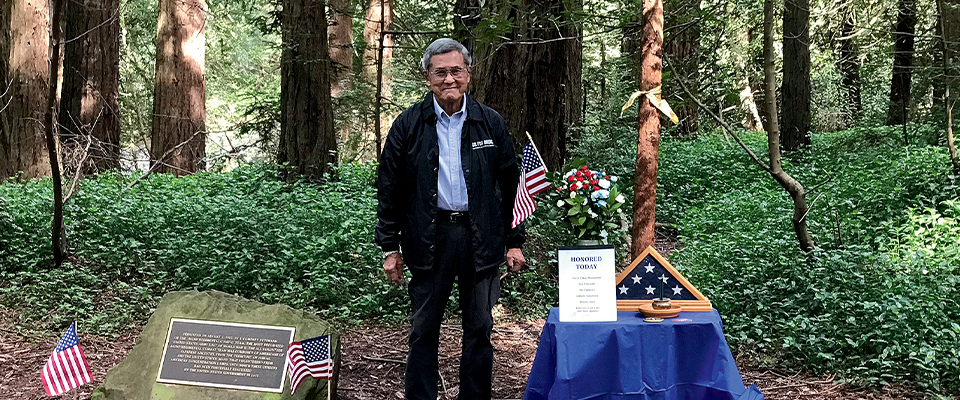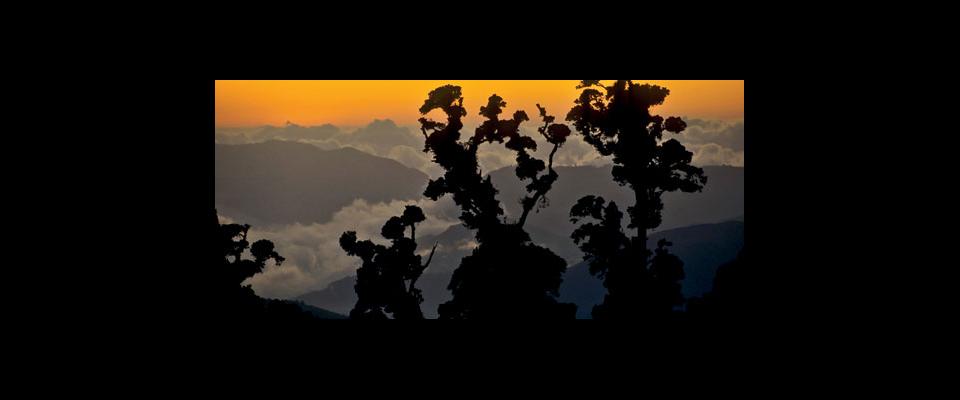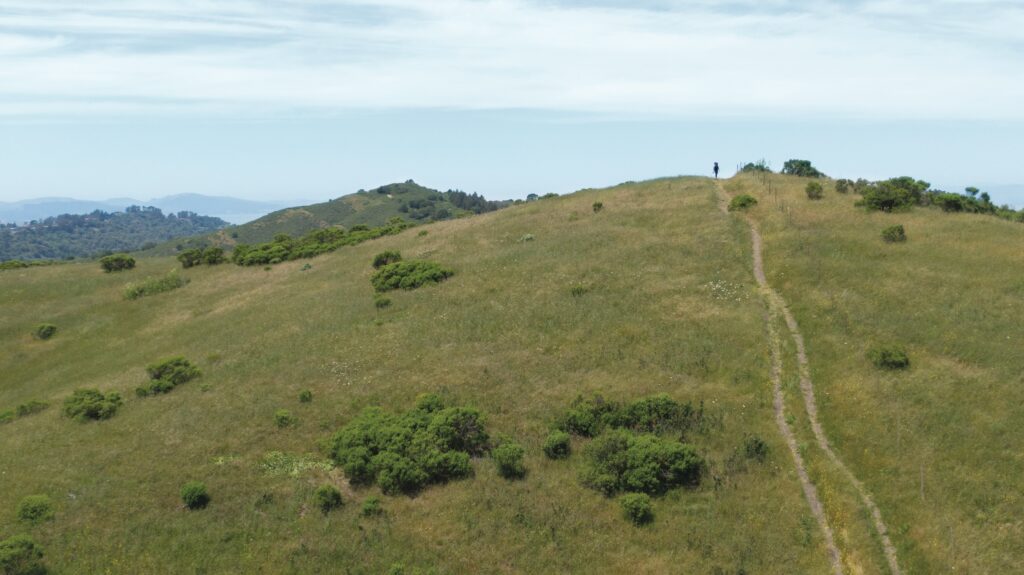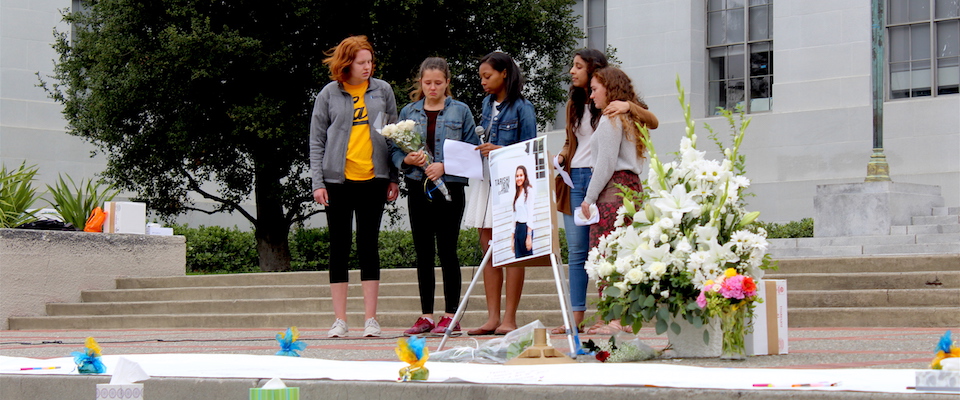Brian Shiroyama didn’t let the pandemic stop him from honoring his Japanese American veterans.
On May 16, 1992, Armed Forces Day, veterans of the 442nd Regimental Combat Team, the segregated Japanese American World War II unit that was the most decorated in American history, planted a redwood sapling in Oakland’s Roberts Regional Recreation Area to honor their buddies who never made it back. And they’ve returned every year since then to hold a memorial service under that sapling, which has grown into a towering tree.
Not this year. The ceremony was canceled due to the coronavirus pandemic. One person, however, kept the faith. UC Berkeley alum Brian Shiroyama talked park service staff into letting him into the park, where he stood under the redwood in silent vigil.
“There were no scouts to do the military honors, no sound from the band, no minister to offer prayers, and no speakers,” he says. “So I did all that I could for about an hour. I think I heard the redwoods whisper, ‘not bad.’”

What made the 442nd especially remarkable is that they performed their heroics while their own families were languishing in American prison camps, merely for having Japanese ancestry. Shiroyama, who was born at Manzanar War Relocation Center in Inyo County, belongs to the generation that came after them.
He is a member of Friends and Family of Nisei Veterans, a group that helps the vets organize their memorial services and has pledged to keep their memory going after they have passed from the scene. Shiroyama also curates an exhibit about the 442nd and the prison camps aboard the WW II aircraft carrier USS Hornet, which is now a floating museum docked at Alameda Point, the former naval base.
After graduating from Cal, he joined the Air Force and spent the next 30 years as a specialist in security and terrorism counteraction. His final job before he retired was head of security for the Air Mobility Command, which included protecting Air Force One. Whenever the president traveled to foreign countries with, as he puts it, “questionable host-nation security,” it was his task to take additional measures to ensure the aircraft’s security.
“What was ironic was that this son of an ‘enemy alien’ rose to the position to be entrusted with the security of the president of the United States,” he says. “That was only possible because of our Nisei veterans who fought to prove their loyalty to this country—nearly a thousand giving their lives—during World War II.”
He worries that the younger generations might not share his dedication to keeping their memory alive.
“Academically, they may understand the hardship of evacuation, internment, and resettlement. But since they have not actually experienced it, as my parents did, it’s easy to let history slip by them. That’s why my exhibit aboard the Hornet, which also shows Japanese American history, is so important. ‘I didn’t know that’ is a very common expression among those touring the exhibit, even among Japanese American visitors.”
Canceling this year’s memorial service was particularly painful because time is fleeting. “Soon we will not have any veterans whom we can physically honor. On past Memorial Days, it was my duty to take Nisei veterans to various ceremonies so they could pay respect to their buddies who had already passed on. It is sad that now I do that by myself and pay respect to all of them.”
Reach Martin Snapp at catman442@comcast.net.
From the Fall 2020 issue of California.





















